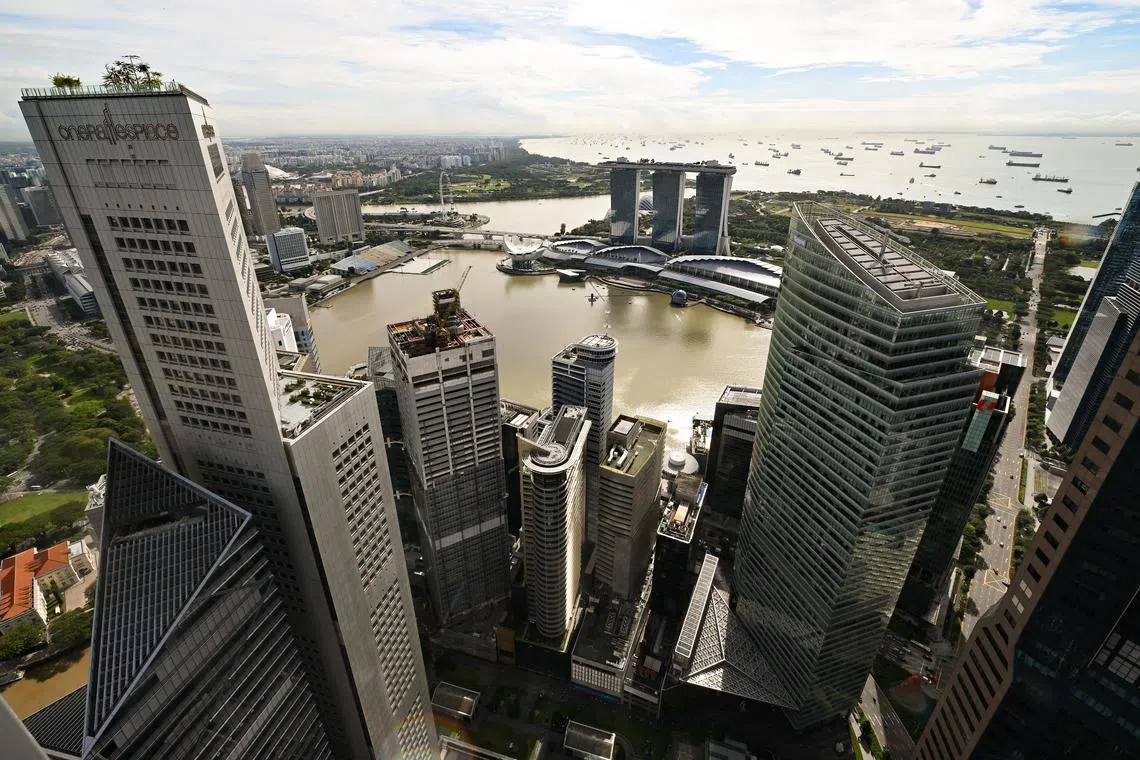MAS to build platform for banks to share customer info in fight against financial crime
Sign up now: Get ST's newsletters delivered to your inbox

The centralised digital platform will help flag, detect and prevent money laundering, terrorism financing and proliferation financing.
ST PHOTO: LIM YAOHUI
Follow topic:
SINGAPORE – A legislative framework that lets banks share customer information was given the green light by Parliament on Tuesday, adding to Singapore’s arsenal against financial crimes.
Amendments to the Financial Services and Markets Bill lay the groundwork for the first centralised digital platform that will allow financial institutions to request and share targeted information on individuals and companies confidentially to help flag, detect and prevent money laundering, terrorism financing and proliferation financing.
The platform, known as Cosmic – short
The banks, which will also help develop the platform with the Monetary Authority of Singapore (MAS), are Citibank, DBS, HSBC, OCBC, Standard Chartered and UOB.
Cosmic will first focus on three key risks – shell companies that conceal true ownership, trade-based cross-border transactions that disguise crime proceeds, and shell companies that facilitate indirect trade and payments to sanctioned countries.
The initiative will be expanded to include more financial institutions and key risks down the road.
Minister of State for Trade and Industry Alvin Tan told Parliament on Tuesday that the MAS is the owner of Cosmic and will ensure that data is exchanged and stored securely.
“The platform will have robust controls, including cyber-security measures such as data encryption, and firewalls to block unauthorised external access. It will also have strict user access limitations. These controls will be subject to periodic audits to ensure the efficacy,” he said.
No red-flag indicators will be triggered for most customers, Mr Tan assured the House, adding that the amendments have legal and operational safeguards to protect the confidentiality of the information being shared and the interests of legitimate customers.
The changes to the law passed on Tuesday allow banks to share information when they detect suspicious transactions that meet a stipulated threshold.
They can also request information from other banks and warn financial institutions of possible bad actors.
In the first phase, information sharing will be on a voluntary basis
DBS head of legal and compliance Lam Chee Kin said criminals are getting more sophisticated and tend to engage with each bank differently to make it very difficult for any one institution to weed out illegal schemes alone.
Cosmic provides banks with additional tools to bridge this information asymmetry, he added.
Ms Loretta Yuen, head of group legal and compliance at OCBC, said information sharing on Cosmic is integrated into the bank’s data analytics tools, adding to its risk detection strengths and expertise.
She also said it will encourage more efficient allocation of industry resources.
“Cosmic allows participant banks to leverage the economies of scale and tactical advantages gained from having a banking sector that can effectively share risk information in a timely manner, with a united purpose to combat financial crime.”
To protect legitimate customers, financial institutions have to assess a client’s profile before sharing details, consider other information sources beyond Cosmic, and give customers an opportunity to explain the suspicious behaviours observed.
“We will only use the data for the purpose of detecting any illicit activities related to financial crime,” said UOB head of group compliance Daniel Ng, adding that the banks are committed to protecting the security of customer data.
Currently, the United States and Britain have laws that allow such data sharing under the US Patriot Act and the Proceeds of Crime Act 2002.
Given the clandestine nature of money-laundering, it is tough to estimate the total amount of money that gets laundered.
But the United Nations office on drugs and crime has estimated that the amount of money laundered globally is about 2 per cent to 5 per cent of global gross domestic product, or roughly US$2 trillion (S$2.65 trillion).
Describing the platform as “ground-breaking”, HSBC Singapore chief compliance officer Jamil Ahmed said the initiative “will place Singapore as a market leader in the global fight against financial crime”, while Citi Singapore country chief compliance officer Dylan Lee said the move will result in a safer banking environment for clients and bolster Singapore’s position as a financial centre.


